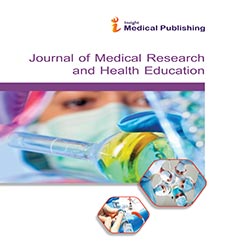Awards
Alireza Heidari
California South University USA, E-mail: Alireza.Heidari@calsu.us
Abstract
Abstract:
Background: Traumatic coagulopathy is often observed in patients with severe traumatic brain injury (sTBI). The association between TBI and coagulopathy is well established. Earlier transfusion with high blood product ratios is recommended for severely injured patients, and fibrinogen is known as one of the most important coagulation factor in the trauma field. Fibrinogen concentrate (FC) is widely used for severe trauma patient and its effectiveness is gradually recognized. However, FC for sTBI is less reported and usage criteria is not established. We started to use FC since 2019 after approval of clinical ethics committee and aggressively administer to multiple trauma patients. We aimed to identify predicting factors of fibrinogen declining in order to set the criteria of FC usage for sTBI.
Methods: We retrospectively reviewed successive adults sTBI in our hospital between January 2017 and December 2019. We compared factors between two groups (high fibrinogen group: fibrinogen value is less than 150mg/dL 3-6 hours after arrival, and low fibrinogen group: fibrinogen value is 150mg/dL or more 3-6 hours after arrival). We researched vital signs, labolatory data, findings of computed tomography(CT) and analyze predictingfactor.
Results: 50 patients were enrolled. 35 patients archieved fibrinogen value 150 or more, and 15 patients did not. D-dimer on arrival above 50μg/mL, skull fracture and depressive skull fracture were strong predicting factors of low fibrinogen group.
Conclusion: Low fibrinogen group should be administered FC. Some labolatory data of Coagulation abnormality demonstrated low fibrinogen as reported. Likewise, skull fracture and especially depressive skull fracture reflect severe coagulopathy in this study and patients without skull fracture is enough treated by using only fresh frozen plasma. Skull fracture has possitility of provoking tissue factors and predicting sevrere coagulopathy.
Biography
Gaku Fujiwara has graduated at the age of 26 years from Tsukuba University and finished junior resident term in Japanese Red Cross Society of Kyoto Daini Hospital. He belongs to neurosurgery department of Kyoto Prefectural University of Medicine as medical doctor.
Pulsus conferences insist participants from all over the world clock in “International Conference on Sports Medicine and Physical Education" during August 31 - September 01, 2020 in Philadelphia, USA. The theme of the conference this year is “Dedicated to Hope, Healing and Recovery” which guarantees an outstanding science program supporting many esteemed speakers who are tormented by intuition
Through providing access to ongoing training and networking opportunities, the conference aims to improve the practice of advancing the profession for the benefit of the people and the individual patients they represent.
Factors Affecting Sports Performances Join us for Sports Medicine 2020, where global scientists, physiotherapist and care providers come together to discuss the latest research findings, hypotheses and insights that will help bring the world closer to breakthroughs in Physiotherapy.
Best Poster Award
A poster is a method of presenting your research to an audience in a visual format. Pulsus Conferences offers the unique opportunity to showcase your research in the poster format.
Poster presentation Benefits:
Unique opportunity to combine visual and oral explanations of your projects in the form of poster presentation
Best poster Award: 3 best posters will be awarded at the closing ceremony of the conference
The entire accepted poster abstract will be published in reputed and supporting international journals with unique DOI given by CROSSREF
Best posters will be given an opportunity to publish the full work at discounted processing charges in the supporting international journals
The selection of the winner will be based on:
Posters will be evaluated based on the following three parameters; those are Presentation Style (5), Research Quality (5) and Layout/Design (5).
Presentation clarity of poster and oral explanation.
Poster Judges overall responses to the questions and the completeness of work
Young Scientist Award
PULSUS publicizes an outline of Awards for Young Scientists in order to help excellence in various fields of science and technology. These Awards are known as "Young Scientist Awards". The award is open to those researchers involved in graduate education and research happenings that accentuate bearable progress.
Benefits:
Advancing perfection and perceiving remarkable commitments made by the youthful researchers for their work done essentially during the span of study.
Find out about career advancement and the most recent research devices and technologies in your field.
Graduates are motivated by the chance to choose neighborhood or worldwide subjects of pertinence/enthusiasm to them, and build up their own logical examinations and models drawing in locally or universally.
Two researchers will be chosen for the Awards.
Chance to be a student envoy.
Chances to coordinate with partners around the world
Discounts at the PULSUS conferences, at different worldwide venues in future.
Chance to distribute full length papers in rumored supporting international journals of respective conference
Best Young Scientist Award introduction will be named by the board and in the event that they wish to publish the full length paper, they can publish in supporting worldwide journals of the respective conference at free of preparing charges.
Open Access Journals
- Aquaculture & Veterinary Science
- Chemistry & Chemical Sciences
- Clinical Sciences
- Engineering
- General Science
- Genetics & Molecular Biology
- Health Care & Nursing
- Immunology & Microbiology
- Materials Science
- Mathematics & Physics
- Medical Sciences
- Neurology & Psychiatry
- Oncology & Cancer Science
- Pharmaceutical Sciences
